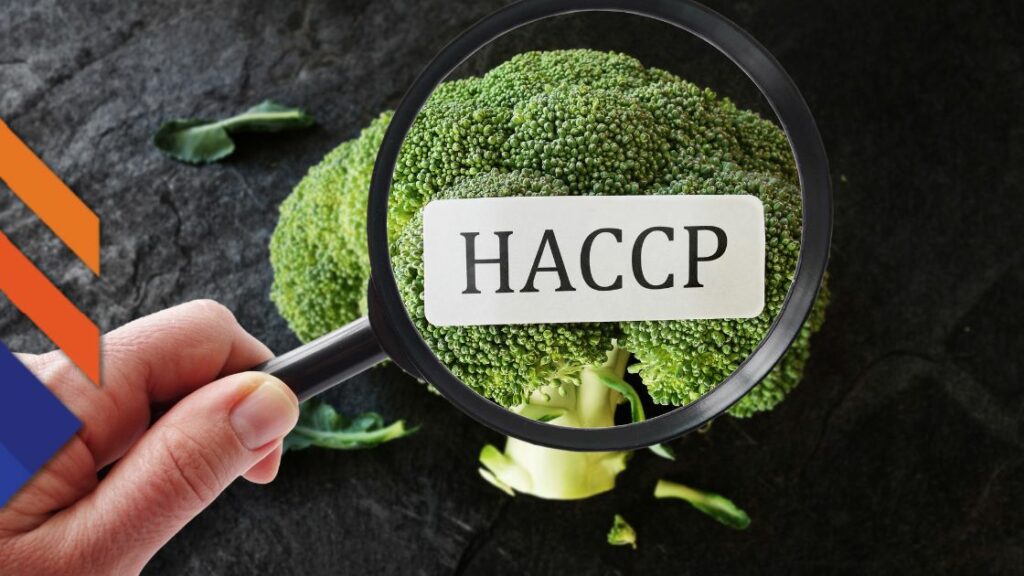Enhancing Food Safety and Achieving HACCP Certification
Contents
In the realm of food production, upholding impeccable standards of safety and hygiene isn’t just a necessity; it’s a testament to commitment. This is where the concept of Hazard Analysis and Critical Control Points (HACCP) certification comes into play.
HACCP certification serves as a globally acknowledged benchmark, assuring consumers and stakeholders alike that a business’s food safety management systems are not only robust but also meticulously implemented.
Understanding HACCP Certification:
HACCP is a systematic and proactive approach to food safety that identifies potential hazards and critical points of control within the food production process. These critical control points are specific stages in the production process where hazards can be prevented, eliminated, or brought down to acceptable levels.
Obtaining HACCP certification entails a thorough risk assessment, strict adherence to predefined procedures, and the ability to effectively demonstrate control over food safety hazards. This certification underscores a business’s dedication to safeguarding consumers from potential foodborne illnesses.
Securing HACCP Certification

Securing HACCP certification involves a structured process that aligns with seven fundamental principles:
- Hazard Analysis: Identifying and evaluating potential biological, chemical, or physical hazards inherent in the production process.
- Critical Control Points (CCPs): Determining specific junctures where hazards can be preempted or effectively managed.
- Critical Limits: Setting measurable parameters for each CCP to ensure that hazards are adequately controlled.
- Monitoring Procedures: Regularly observing and documenting CCPs to ensure they remain within the stipulated critical limits.
- Corrective Actions: Establishing a plan of action for instances when CCPs exceed critical limits, aimed at preventing unsafe products from reaching consumers.
- Verification Procedures: Periodically reviewing and validating the effectiveness of the HACCP system to ensure ongoing compliance.
- Documentation: Meticulously documenting all processes, procedures, and actions taken to ensure a trail of accountability, traceability, and adherence.
Role of WMS in Achieving HACCP Certification

A Warehouse Management System (WMS) plays a pivotal role in assisting businesses to secure HACCP certification by optimising various operational facets:
1. Traceability: Ensuring Transparency in the Supply Chain
At the core of HACCP lies the imperative of traceability – the ability to trace the journey of ingredients and products through the intricate web of the supply chain.
Here’s where a WMS shines: It offers invaluable real-time visibility into the movement of inventory, providing a digital roadmap of ingredient origins and product journeys. This meticulous traceability aligns seamlessly with HACCP’s traceability prerequisite, making recall management a streamlined affair.
Imagine having the power to pinpoint the source of potential contamination and promptly remove affected products from the market, all at the click of a button. This is the traceability advantage that a WMS offers, significantly mitigating risks and enhancing consumer trust.
2. Control and Monitoring: Preventing Hazards Before They Occur
The integrity of your products hinges on maintaining the right storage conditions.
A WMS, armed with integration capabilities, ensures that temperature and environmental monitoring become integral parts of your food safety strategy. It proactively prevents hazards such as contamination and spoilage by issuing alerts when storage conditions deviate from the optimal range.
This proactivity, made possible by the real-time monitoring enabled by a WMS, aligns perfectly with HACCP’s preventive approach to food safety. By leveraging this feature, businesses can uphold the quality and safety of their products, safeguarding consumers and reputation alike.
3. Quality Control: Elevating Product Excellence
HACCP’s focus on quality assurance finds resonance in a WMS’s capacity to streamline crucial quality control functions.
Barcode scanning, visual inspections, and weight checks – once potentially error-prone tasks – become meticulously orchestrated processes under the purview of a WMS. The result? A reduction in errors and an elevation of product quality that’s in complete harmony with HACCP’s principles.
The WMS’s ability to enforce quality control measures ensures that every product leaving your facility meets the highest standards, further solidifying your commitment to food safety excellence.
4. Documentation and Compliance: Simplifying Accountability
In the realm of certification, meticulous documentation is a non-negotiable.
A WMS takes the chore out of this necessity. Its digital audit trail capabilities serve as a comprehensive repository of records, procedures, and actions taken. During audits and inspections, a few clicks lead to a treasure trove of substantiating evidence, thereby streamlining the compliance process.
The WMS’s role as a guardian of documentation aligns seamlessly with HACCP’s emphasis on accountability and transparency, helping businesses navigate the regulatory landscape with confidence.
5. Workflow Guidance: Nurturing a Culture of Compliance
An often-underestimated facet of HACCP certification is the adherence to guidelines and procedures by the workforce.
Here, a WMS transforms into a mentor, offering procedural guidance and step-by-step instructions to employees. This guidance doesn’t just ensure that HACCP guidelines are consistently followed; it cultivates a culture of compliance and safety across the workforce.
A WMS transforms the abstract principles of HACCP into actionable steps that resonate with every employee, thereby becoming a conduit for consistent adherence and a catalyst for operational excellence.
Maintaining HACCP Certification

Securing HACCP certification is a significant achievement, but maintaining it is equally critical.
A WMS is instrumental in sustaining this accreditation by ensuring the ongoing adherence to HACCP principles. The system’s real-time monitoring, quality control features, and documentation capabilities contribute to maintaining the required standards.
By providing consistent oversight and alerts, a WMS aids businesses in promptly addressing deviations from critical limits and implementing corrective actions, which is pivotal for upholding HACCP accreditation.
Enhancing Operational Efficiency
Beyond its role in food safety and certification, a WMS offers further advantages in terms of operational efficiency. It optimises inventory management by automating tasks such as order processing, picking, and shipping.
This automation reduces human errors and accelerates order fulfilment, ensuring products reach customers promptly while maintaining their quality. The system also facilitates efficient space utilisation within warehouses, leading to cost savings and enhanced productivity.
Realising ROI with a WMS
Investing in a WMS is an investment in the future of your business. By enhancing food safety measures and achieving HACCP certification, you’re strengthening consumer trust and establishing yourself as an industry leader.
The reduction in recalls and the mitigation of potential risks can lead to significant cost savings in the long run. Additionally, the streamlining of operational processes and improved order accuracy directly contribute to increased customer satisfaction and loyalty.
Try our easy-to-use WMS ROI Calculator to see what Datapel can do for your bottom line.
The Human Factor
While a WMS is a powerful tool, it’s important to recognise the role of the workforce in HACCP compliance and operational excellence. Regular training and education for employees on the principles of HACCP, coupled with the proper use of the WMS, create a synergy that reinforces food safety standards and efficient practices.
Conclusion
The partnership between HACCP certification and a cutting-edge WMS is a cornerstone in achieving food safety excellence and operational efficiency.
With its role in traceability, control, quality assurance, documentation, and workforce empowerment, a WMS proves its significance not only in gaining HACCP certification but also in maintaining it. The seamless integration of technology and food safety principles paves the way for an industry that prioritises consumer well-being and operational excellence.
Book a personalised demo to find out how Datapel Cloud.WMS can support your business.

In my role, I oversee the development of insightful blogs that delve into the intricacies of warehouse management. Each piece reflects my dedication to empowering businesses through informative content. Through my team’s extensive experience in the industry, we aim to bring clarity to the complexities of WMS, helping businesses make informed decisions.
Join me on a journey through the ever-evolving landscape of warehouse technology as we explore the latest trends, industry insights, and practical tips to streamline your operations. Feel free to connect, and let’s embark on a collaborative exploration of how WMS can redefine your business efficiency.
Cheers to innovation, efficiency, and the exciting world of warehouse management!







